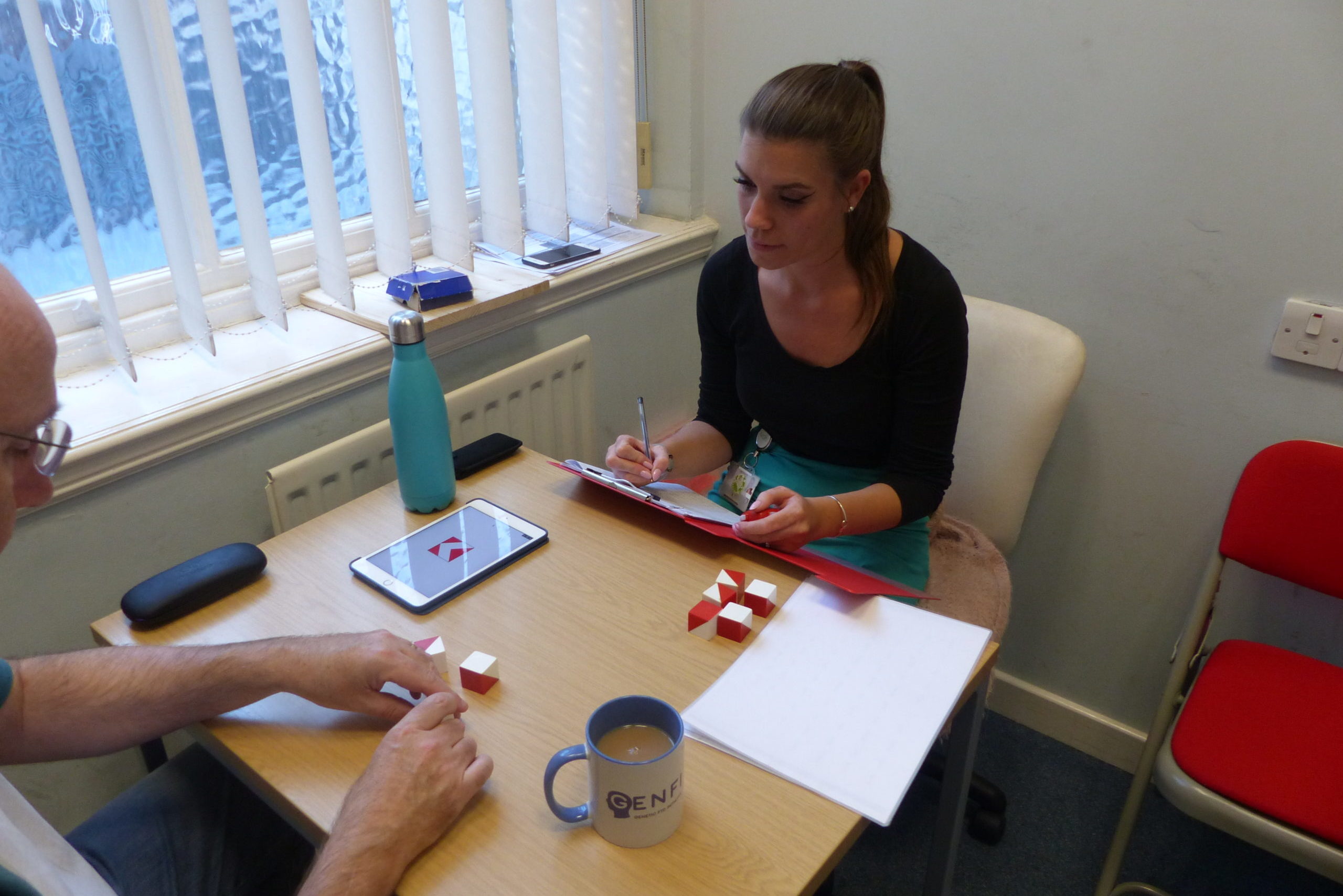The two main studies are:
- The Genetic FTD Initiative (GENFI) study is aimed at people with one of the genetic forms of FTD and their first-degree relatives.
- The Longitudinal Investigation of FTD (LIFTD) study is aimed at people with the non-genetic (or sporadic) forms of FTD, including people with behavioural variant FTD and all of the PPA variants.
These studies involve a 1 or 2 day visit, where you will undergo a number of tests including:
- a clinical examination
- psychology tasks of language, memory and thinking
- magnetic resonance imaging of the brain
- blood sampling
- spinal fluid sampling
During the visits there is also an opportunity to meet with the team and discuss any ongoing issues.
Other studies people are asked to take part in are:
- The Early Detection of FTD (EDoF) study which investigates digital biomarkers.
- The LIFTD-PIN study of inflammatory PET markers in FTD.
- The MINDMAPS study investigating synaptic and mitochondrial PET imaging in FTD.
- The Improving Wellbeing in At-Risk FTD (IWARF) study.
We are also involved in two other studies at UCL of associated disorders:
- The PSP CBS MSA (PROSPECT) study which is recruiting people with progressive supranuclear palsy and corticobasal syndrome.
- The Cognition And Behaviour In ALS (CABIA) study which is recruiting people with motor neurone disease.
If you are interested in being part of any of these studies, please contact the Study Co-ordinator Sophie Goldsmith at genfi@ucl.ac.uk.
In the US, the FTD Disorders Registry has a list of current research studies that are recruiting.



